Algeria, a gateway between Africa and Europe. The country is hosting Africa’s largest textile factory, Tayal Textiles Industrial Complex in Sidi Khattab, Relizane. It will create 25,000 Jobs and produce 60 million metres of fabric and 30 million jeans.
Algerian textile and leather companies, which still resist the multiple constraints linked to the effects of massive imports, hold less than 10% of the Algerian market. The Textile industry in Algeria and the clothing subsector which has needs that exceed 150 million items annually, is only covered at 5% by the local producers, the rest is flooded at 95% by import.
Following the efforts made by the state to revitalize this sector, the textile industry in Algeria and clothing industries have climbed by nearly 12% in the last few years.
Algeria intends to achieve a “solid partnership” according to the 51-49% rule with foreign companies, particularly Italian or Turkish -the latter being the igniter of TAYAL’s existence- for the transfer of technology and know-how in this industrial branch, in order to be able to rebound in the domestic market, where demand for quality products is strong.
The Textile industry in Algeria is a strategic sector with a promising future that has powerful assets, that would allow it to reach around 2 billion euros of Textile-Clothing exports by 2022 according to statistics and plans actions proposed by experts in the sector.
For the leather and footwear industry, Algeria intends to achieve a “strong partnership” under the 51-49% rule with foreign companies, especially Italian or Turkish companies, for the transfer of technology and expertise in this industrial branch, in order to be able to rebound in the domestic market, where the demand for quality products is strong. Focusing on training that will benefit 200 million DZD.
Algerian economic operators are looking for ways to revive its sectors which are rich niches and which can make big money for Algeria in terms of export and investment.
Why Algeria!
Its strategic position: North African with a coastline on the Mediterranean Sea and the center of Maghreb.
Its area: 2,381,741 km2 hence the availability of large investment area, besides a young and active workforce.
A potential market: A very strong consumer demand, 41.3 million consumers.
Labour costs are much cheaper than Europe, Morocco and Tunisia, and the cost of energy at very profitable prices!
Investment facilitation and encouragement by the government: many exemptions on customs duties and VAT, interest rate rebates…
Textile Public Sector (36 company)
Production of textile 17 Units
o In Partnership with GETEX _ MND _ IATIT 07 Units
o In Partnership Algeria_Turkey 01 Complexe (Integrated)
o Cotton sector 11 Units
Textile Private Sector (around 5000 Company)
o 3 000 units in the confection
o 1 025 Units in hosiery
o 955 Units in the Weaving _ Finishing
o 6 Cotton mills
o 3 Texturing units
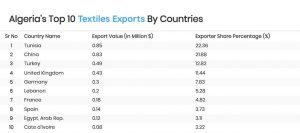
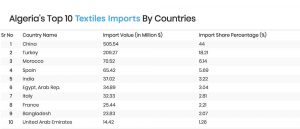
Textile industry in Algeria mainly focus on the below sectors:
- Fabrics
- Hosiery
- Confection
- Furnishings
- Footwear
5 top Textile Manufacturers in Algeria
1- TAYAL S.P.A Head Quarters
Sidi Khettab Industrial Zone, 22 Isles Section, Property 20 Relizane, 48029, Algeria.
[email protected]
Tel: +213 (0) 46 802 904
www.tayal.dz
2- SARL INOTIS
Z.I. Es-Senia II B.P. 62 A 31000 Oran Algérie
Tel: +213 (0) 41-61-76-19
www.inotis.com
3- Tapidor
www.tapidor.com
Address:Unit El Kerma. Industrial Zone.
Lot n ° 101. 31100 Oran. Algeria
Tel. : 213 (0) 41.65.90.00/01/09
4 – LEATHER INDUSTRY /SPA
+213 23 22 27 08 / +213 23 22 26 07
[email protected]
www.leatherindustry.dz
5 – HOLDING GETEX
Tel: +213 21 679 285 | +213 21 670 219
[email protected]
www. getex.dz
Clothing in Algeria
A Fashion that Reflects Flamboyance
Any fashion that is lucky enough to fall under the influence of three civilizations are certain to be an extraordinary blend of style and chic.
Algeria sits at the crossroads of three worlds, Arab, Mediterranean and African, and Algerian fashion has long been influenced by the fact that its unique location has been a place of historic meetings and exchanges.

Not surprisingly, Algerian designers have succeeded in combining the culture traditions with the influence of the environment of the country. These influences have found their way into the fashion industry and have foreshadowed several changes in the choice of color, design and pattern.
Women’s costume in particular, successfully combines the modesty required under Islamic law, with flamboyance, utility and elegance. There is a strong emphasis on intricate decoration and colors. The use of colorful fabrics for clothing stands out against the predominant surrounding earth tones and the Algerian woman has kept her love for color and brightly colored patterns. Reds, yellows, greens and blues as well as many other color combinations are combined and finely embroidered with gold and silver threads.
The Karakou is a typical traditional dress and incorporates a velvet jacket embroidered in gold and silver worn with the traditional saroual (Arab pants) and comes from Algiers, the capital of Algeria.
The Blousa from Tlemcen, West Algeria is a full-length, straight-cut dress made entirely from lace and sequined chest.
The Djeba Fergani is the traditional dress from Constantine in the eastern side of the country. This dress is always made with velvet and embroidered by gold and silver thread. The sleeves can be made of lace.
In the central region of Tizi-ouzou, the dress is mainly made from cotton and is completely embroidered at the neck and bodice as well as at the wrists. However, it is a wedding and other special occasions that these traditional dresses do justice to the affair. Distinctive jewelry is also worn.
As proof of innovation, many designers and dress-makers have succeeded in modernizing the traditional dresses of Algeria and adapting them to modern practical and functional clothes.
The fact that these forms of traditional dresses are still used is a tribute to its comfort and suitability for the climate. It also points to the pride that Algerians take in the tradition of their ancestors and their identity in the modern world.
Algeria Economy
The Algerian economy is expected to recover partially in 2021 from the health and economic crises caused by the COVID-19 pandemic. Algeria’s slow pace of vaccination suggests, however, that some containment measures could remain in place in the country until 2022. As a result, although the hydrocarbon industry is expected to rebound in 2021, activity in the rest of the economy will be slow to recover amid employment and earnings losses and low consumer and business confidence. Starting with an Socio-Economic Recovery Plan, the Algerian authorities have announced a longstanding reform effort to shift the economy toward a sustainable, private sector-led model, engage in a transition toward renewable energy, reduce severe imbalances in the country’s macroeconomy, and protect the population’s livelihoods.
Algeria, like other oil-exporting countries across the MENA region, will need to shift toward a more diversified economy to lift job prospects in the country, which are crucial given its young demographic profile. The structural decline in hydrocarbon revenues also suggests that current levels of public spending are unsustainable and that policies designed to generate additional fiscal revenue need to be complemented by measures to improve the efficiency and the fairness of public spending. The success of structural economic reform will hinge on its ability to restore macroeconomic stability and enact decisive policies to support private sector development while continuing to protect the most vulnerable segments of the population.
Top 3 Companies Producing Textile Goods in Algeria
Algeria, officially known as the People’s Democratic Republic of Algeria, is a country in the northern part of the African continent. Algeria’s economy is primarily powered by its vast petroleum reserves. Like other oil-exporting countries in the MENA area, Algeria will need to diversify its economy to improve job opportunities, which are critical given the country’s young demographic profile.
The textile industry is a promising strategic sector with great potential for generating employment in Algeria. The top three Algerian companies producing textile goods are introduced in the following essay.
Tayal

The Algerian for Textile Industries TAYAL, S.P.A. was launched in November 2013 by the C&H Group, TEXALG, and MADAR Holding, in collaboration with the Turkish textile TAY GROUP. With over 60 years of experience, the partners decided to create one of the world’s few vertically integrated textiles plants, beginning with cotton fiber and ending with ready-to-wear garments, passing through all production stages.
TAYAL can produce 36,000 tons of yarn, 50 million meters of woven fabric, 5,000 tons of knitted fabric, and up to 30 million ready-to-wear garment items per year. TAYAL now employs over 2,000 people and expects to reach its maximum capacity of 10,000 people in the near future. TAYAL aspires to make Algeria the most important textile sourcing center in the Maghreb, Africa, and Europe in the global sourcing network.
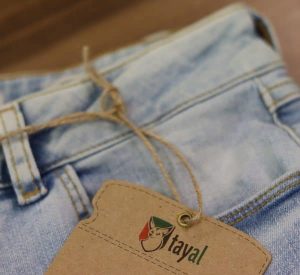
Safsicuir

SAFSICuir, a leader in the manufacture and distribution of PVC and PU leather, was founded in 1969 and is proud to be one of Algeria’s first private enterprises in the leather industry. High-quality synthetic leather produced by SAFSICuir is used in various industries, including automotive, furniture, footwear, and clothing. SAFSICuir provides a wide range of colors and finishes to meet customer needs based on their different activities and requirements. SAFSICuir specializes in manufacturing high-quality leather goods for the automotive industry.
Health-Hygiene is another category of SAFSICuir products that provide anti-bacterial protection and prevent bacterial development. Moreover, Textiletec is a brand of SAFSICuir producing a variety of technical textiles, including geotextiles and nonwovens made from diverse fibers such as cotton, polyester, PP, and viscose.


Tiscoba
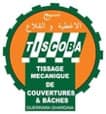
The TISCOBA company was established in 1968 in Algeria’s Guerrara industrial region. It specializes in producing industrial canvas for protective tarpaulins, camping tents, sleeping tents, and waterproof tarpaulins made of 100% cotton. TISCOBA is also a market leader in marquee manufacturing, producing both structure and covering components. TISCOBA’s know-how in producing tarpaulins, tents, and marquees is transmitted through the generations. This reputable Algerian company is constantly innovating and continuously developing. As a result, TISCOBA is operating with cutting-edge technology and modernized machinery.
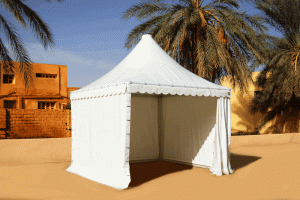
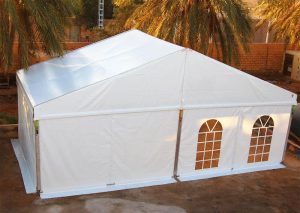
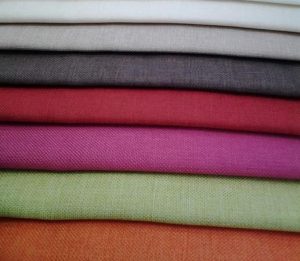




















Dear Sir,
How are you today.
We regularly export our products “TEXTILE WASTE” ( COTTON HOSIERY CLIPS) ALL COLOUR from Bangladesh to others country around the world.
Our Products:
– Textile Waste (Cotton Hosiery Clips) all color.
– Jeans Clips Cotton and PC.
– Cotton Yarn Waste.
– Viscose.
– If any inquiry above pls send me I will try my best from Bangladesh.
Pls send me your details inquire (which Quality you need and quantity,
destination port) so that I will quote you our best.
Your good co-operation with inquiry highly appreciated.
I am waiting for your NEW INQUIRY.
Best regards,
OBAID
A.E. Trading International
13/11 Shailargati, Dattapara,
Tongi, Gazipur,
Bangladesh.
Whatapp/Cell No: 00880- 1912-247258.
Mail: [email protected]